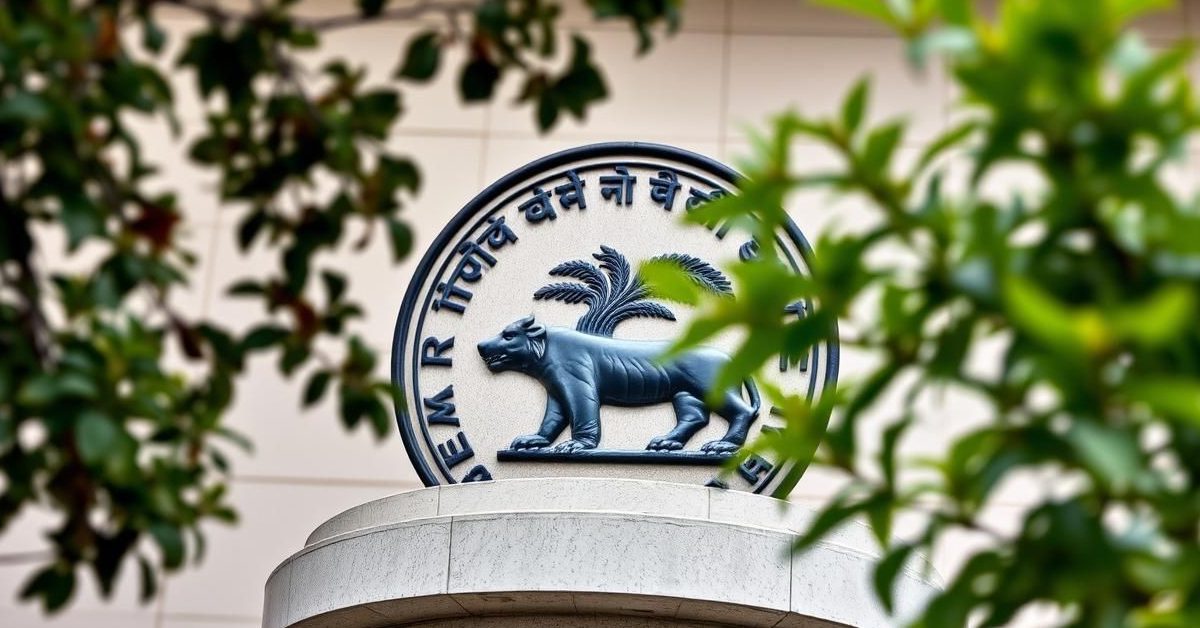A significant financial relief is on the horizon for millions of Micro and Small Enterprises (MSEs) and individual borrowers across India. The Reserve Bank of India (RBI), India’s apex banking regulator, has delivered a decisive blow against restrictive lending practices by banning the levy of foreclosure charges or pre-payment penalties on floating rate loans. This landmark decision aims to foster greater financial freedom and transparency within the country’s diverse lending landscape.
Effective from January 1, 2026, this new directive promises a more equitable financial ecosystem. It covers all loans sanctioned or renewed after this crucial date, signaling a clear shift towards borrower-friendly norms.
💸 Unpacking the RBI’s New Mandate: Who Benefits?
The Reserve Bank of India’s comprehensive directive mandates that various regulated entities can no longer impose pre-payment charges on floating rate loans. This broad prohibition extends specifically to:
- Commercial Banks
- Tier 4 Primary (Urban) Co-operative Banks
- Non-Banking Financial Companies – Upper Layer (NBFC-UL)
- All India Financial Institutions
Crucially, this applies to all loans granted for business purposes to both individuals and the vast ecosystem of small businesses that form the backbone of India’s economy.
🚫 Crucial Exceptions and Targeted Relief
While the broad mandate offers widespread relief, the RBI has carved out specific exceptions and tailored regulations for certain financial institutions to ensure market stability and targeted support. Notably, Small Finance Banks, Regional Rural Banks (RRBs), and Local Area Banks are generally excluded from the universal ban on foreclosure charges.
However, these institutions, along with Tier 3 Primary (Urban) Co-operative Banks, State Cooperative Banks, Central Cooperative Banks, and NBFC-ML (Medium Layer), are still prohibited from levying pre-payment charges on loans with a sanctioned amount or limit up to Rs 50 lakh. This nuanced approach aims to protect smaller financial entities while still offering significant financial advantages to a large segment of borrowers.
👤 Beyond Business: A Boost for Individual Borrowers Too
This financial reprieve isn’t solely for businesses. The RBI’s directive also extends crucial benefits to individual borrowers. Any regulated entity is now barred from levying pre-payment charges on loans granted for non-business purposes to individuals, irrespective of whether they have co-obligants or not. This empowers ordinary citizens to manage their finances more flexibly, without the fear of hidden penalties for paying off their debts early.
📄 Transparency in Overdrafts and Loan Agreements
For dynamic financial tools like cash credit and overdraft facilities, the new norms bring welcome clarity. No pre-payment charges will apply if the borrower formally notifies the regulated entity of their intent not to renew the facility, provided the account is closed by the stipulated due date. This ensures fair play and predictability for businesses relying on such flexible credit lines.
The RBI has also underscored the paramount importance of transparency. Lenders are now strictly required to disclose the applicability of any pre-payment charges clearly within the sanction letter and the loan agreement. Furthermore, regulated entities cannot retrospectively impose charges or fees that were previously waived off at the time of pre-payment, safeguarding borrowers from unexpected financial burdens.
🧐 Why This Policy Shift? The RBI’s Rationale
Behind this progressive policy lies a deep understanding of market realities and a commitment to protecting borrowers. The RBI’s supervisory reviews had revealed “divergent practices” among regulated entities regarding the levy of pre-payment charges on MSE loans. This inconsistency often led to significant customer grievances and disputes, creating an uneven playing field.
Many lenders were found to be including restrictive clauses in their loan contracts, essentially deterring borrowers from seeking better interest rates or improved service terms from other lenders. Such practices stifled healthy competition and locked businesses into potentially unfavorable agreements. Recognizing the vital role of easy and affordable financing for the growth of Micro and Small Enterprises, the RBI stepped in to eliminate these barriers, fostering an environment of greater fairness and liquidity.
🏆 Unlocking Opportunities: The Impact on MSEs
The removal of foreclosure charges is poised to be a game-changer for MSEs. Financial experts widely believe this move will reduce discrimination between existing and new borrowers. Previously, an existing borrower might face a penalty for switching to a new lender offering a lower interest rate, effectively trapping them.
Now, with this barrier removed, the revised directions are expected to significantly increase competition among banks and other lending institutions. This heightened competition will invariably lead to better pricing, more innovative financial products, and improved terms for MSE borrowers – a crucial advantage in a dynamic economic landscape. It grants these businesses greater financial agility, allowing them to optimize their borrowing costs and reinvest savings into growth.
💪 Understanding Micro and Small Enterprises (MSEs)
To fully appreciate the scope of this policy, it’s vital to understand the Reserve Bank of India’s classification of Micro and Small Enterprises:
- Manufacturing Sector:
- Micro Enterprises: Investment in plant and machinery does not exceed Rs 25 lakh.
- Small Enterprises: Investment in plant and machinery is more than Rs 25 lakh but does not exceed Rs 5 crore.
- Service Sector:
- Micro Enterprises: Investment in equipment does not exceed Rs 10 lakh.
- Small Enterprises: Investment in equipment is above Rs 10 lakh but not more than Rs 2 crore.
By empowering these critical segments of the Indian economy, the RBI’s latest directive paves the way for stronger growth, enhanced competition, and a more transparent lending environment for all.














